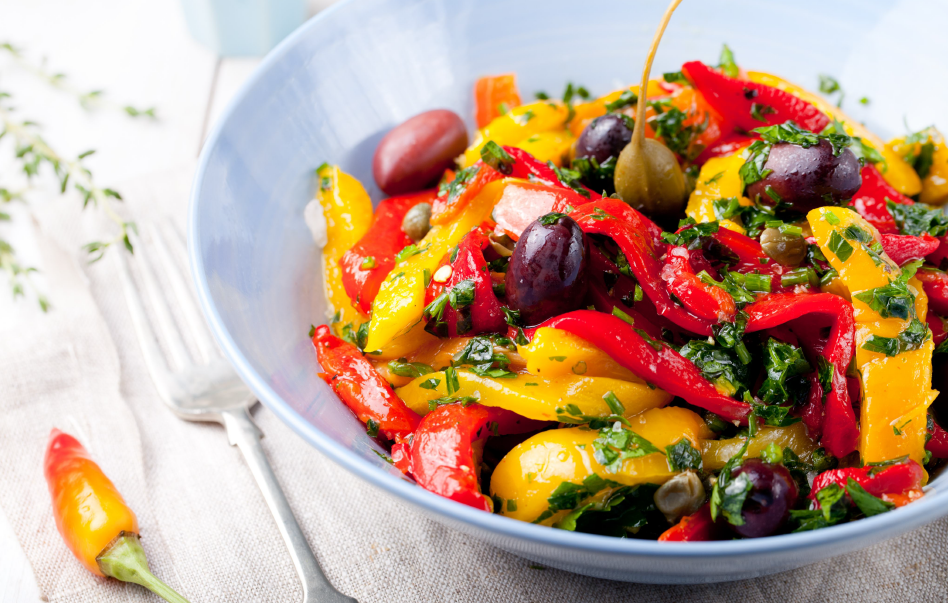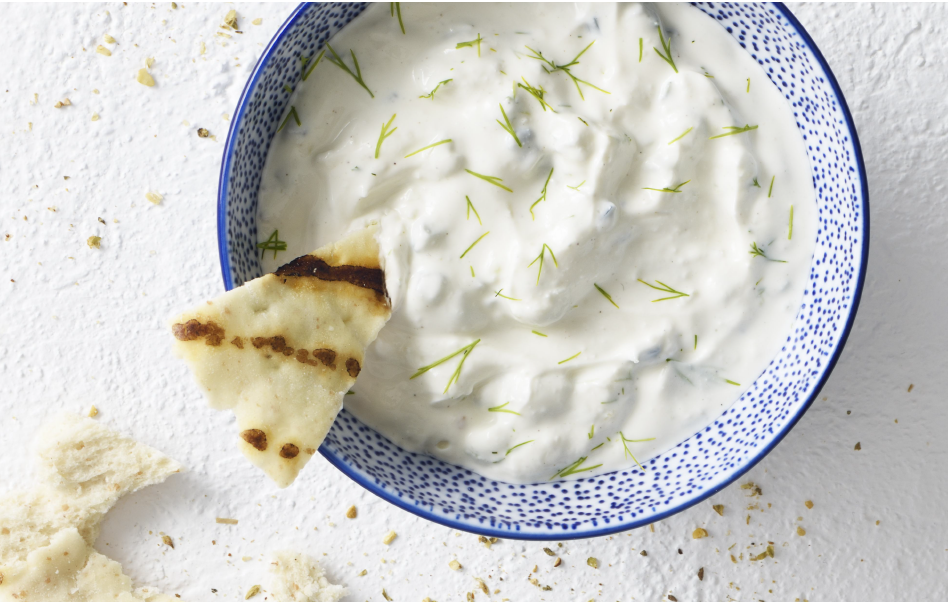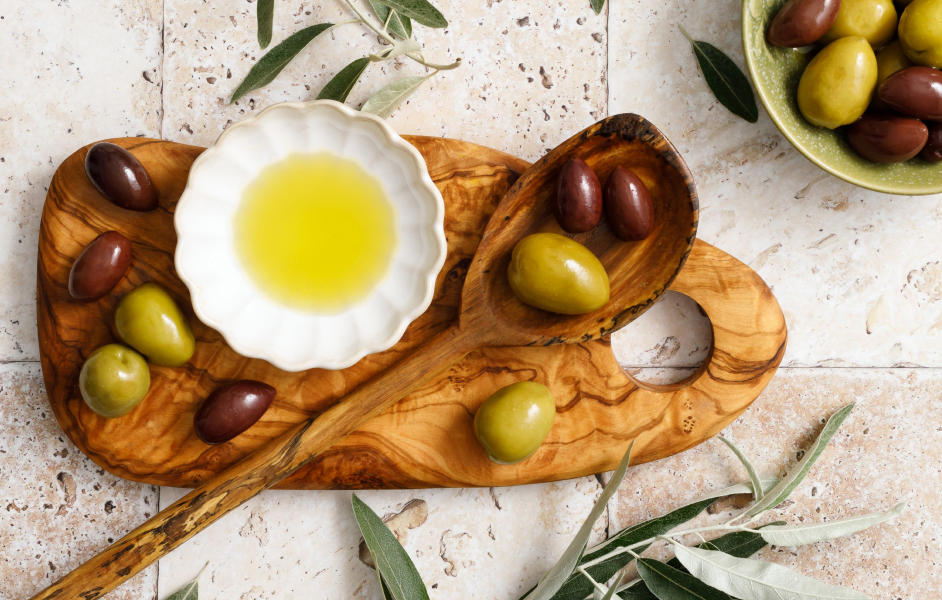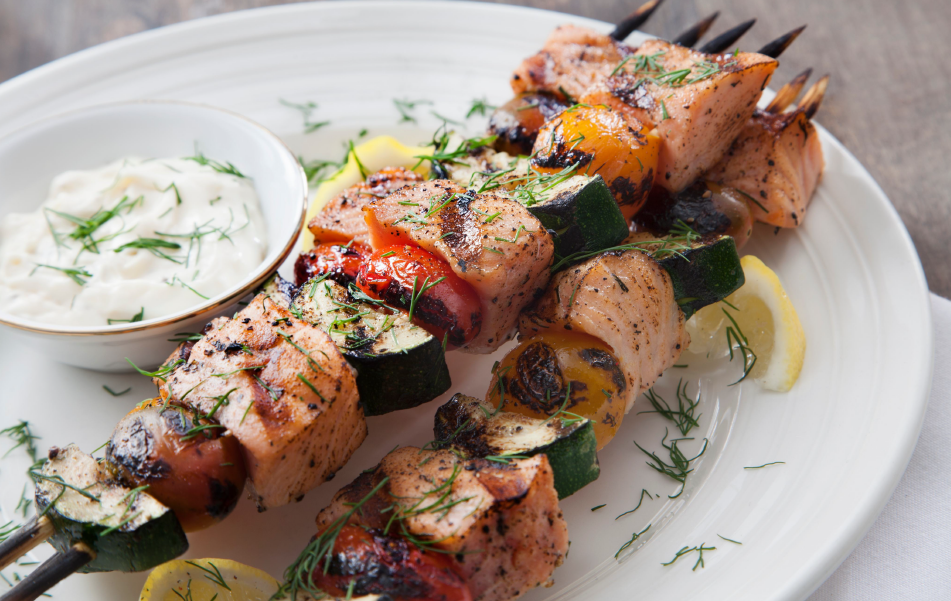Summer treats straight from Greece



Greece is famous for its history, culture, its ancient monuments and… its gastronomy! Drawing on fresh
Mediterranean ingredients and thousands of years of history, Greek cooking is vibrant and multifaceted –
just like the culture and people. At the crossroads between three continents, Greece is a cultural and
culinary melting pot. As well as ancient Greek and Byzantine traditions, you’ll also find Turkish, Balkan and
Italian influences. You can expect lots of olive oil, grains, meat, olives and fresh herbs, not to mention honey
and nuts for dessert.
Regional dishes shaped by time, climate & landscapes
From olive trees and vines in the southern Peloponnese Peninsula to the cooler climate of Macedonia in the north, Greece is home to myriad
landscapes and traditions, reflecting the unique history woven into each region.


The north: peppers, pies & more
In the vast area spanning the north of Greece, at the border with
Balkan neighbours Bulgaria and North Macedonia, Greek Macedonia
fuses diverse culinary influences with delicious local ingredients –
including Red Florina peppers, Naoussa peaches, Edessa cherries,
saffron from Kozani and wild mushrooms from Grevena. Many recipes
feature pork with vegetables and fruits, including popular pork and
cabbage stuffed yiaprakia rolls eaten at Christmas. Along the coast,
mussels, cuttlefish and octopus star on the menu. This is also home
to the iconic ravani semolina cake. In the chiller north-eastern
Thrace, recipes tend to be hearty and packed with meat and winter
veg, along with plenty of herbs and spices. While in Epirus, the
rugged landscapes and scarce resources have shaped a cuisine
famous for its sweet and savoury pies – traditionally packed with any
ingredients available, from wild greens to mountain mushrooms. This
is also one of the regions in Greece where you’ll the most – and
yummiest – feta cheese, as well as plenty of fish along the coast,
lakes and rivers.
The centre: from cheese to mediterranean caviar
Encased by lush forests, high mountains and beautiful lakes, Stereá
Elláda, also known as Roúmeli, is famous for its meat – in particular,
souvla (spit roast). Traditionally home to nomadic communities, many
still lead a pastoral life, herding sheep and goats for dairy and meat.
So, expect to find plenty of cheese, milk and yoghurt on the table. In
the west, the sea and lagoons are home to world-famous Greek
caviar, avgotaraho, or grey mullet bottarga. Across the vast plain of
Thessaly, vegetables, fruits and grains flourish. In the mountains,
you’ll find cheeses and amazing filo pastry. While by coast, you get
lots of sardines, anchovies and shrimp – not to mention tsipouro, a
traditional Greek spirit distilled from grape pomace, which is often
accompanied by mezze in local taverns.




The south:
mediterranean delights
Home to mountains, plains and steep shores, the Peloponnese
Peninsula is covered with olive and citrus trees. Olive oil is
unsurprisingly a key ingredient in cooking and frying local specialities
like lalagia (donuts) and to preserve local cured pork eaten as meze.
The fertile plains produce wonderful vegetables and herbs including
aubergines – a staple ingredient. This region is also famous for its
wine, known as the “Blood of Hercules”. According to myth, Hercules
drank local red wine made from Agiorgitiko grapes to celebrate his
victory against the Nemean lion.
The islands:
multifaceted meals
Greece is made up of many islands scattered across hundreds of
kilometres. Invaded by the Venetians, British and Russians, the Ionian
Islands infuse their local traditions and ingredients – including
excellent feta and cured meats – with western influences. In the
southeastern Aegean Sea, the Dodecanese bring together east and
west in dishes dominated by fresh fish and seafood. In the northern
Aegean Sea, each island has its own unique identity. Samos is
famous for its sweet Muscat wines, while Chios is only place in the
world that produces masticha – a resin from the mastic tree with a
distinctive flavour and healing properties. Lesvos is the birthplace of
ouzo, Greece’s famous anise alcohol and home to succulent papalina
sardines. Let’s not forget Crete, Greece’s largest island, where goat is
popular, and you find a dizzying array of breads, pies and pastries –
not to mention different wines.


